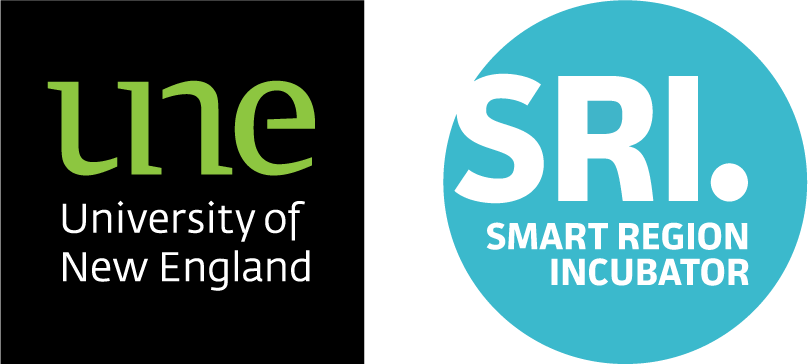How UNE’s SRI internships are providing students opportunities to succeed
They say the best place to learn is on the job, and thanks to the UNE Smart Region Incubator (SRI) internship program, a handful of UNE students are being given the chance to do just that.
Established this year, the program gives students from all fields and levels of study the opportunity to gain hands-on experience with some of the New England North West’s top business minds. For some, it can even lead to full-time employment.
“It’s been fantastic over the last 12 months to have internships with start-ups part of the learning journey for UNE students,” says SRI Director, Dr Lou Conway.
“Working alongside a founder of a start-up gives students an insight into the day-to-day problem-solving, challenges and also the sense of achievement of bringing to market new products or services.”
It’s never too early for an internship
Alissa Cann is a first-year Bachelor of Accounting student at UNE. After she saw a Facebook post about the SRI Internship program and got in touch, the SRI suggested an internship at Altitude Business Advisory - an accounting firm that uses cloud technology to share financial advice and services with businesses across Australia from their headquarters in the Northern Tablelands.
“The internship makes university easier as I’m practically learning during my internship as well as theoretically in my studies,” says Alissa.
“I have had various opportunities in my internship so far such as being able to complete courses to be certified in using accounting software and having the opportunity to have learning support from a qualified accountant.
“I would highly recommend the UNE SRI internships to first-years – I have already told my friends they’re worth it! The internship program allows you to earn a bit of money while studying as well as getting an insight into working in your future career. It was definitely one of the best choices I have made in terms of my career.”
At this stage, Alissa’s internship will finish in December this year, however, she is hoping to continue in 2023.
Where an SRI Internship can lead you
Tully McDonald is in his final year of a Bachelor of Computer Science at UNE. Earlier this year, he did an internship with award-winning precision agriculture start-up, FarmLab, and now, he’s landed a job with the business. Based in Armidale, FarmLab uses the latest in soil science and technology to map and analyse soil, helping agronomists and farmers make the best decisions with their environmental data.
“Before the internship, I was wondering if I would find work in Armidale suitable for my career path,” Tully says.
“FarmLab offered opportunities in mobile development, web development, data science, and software management. These are all areas which interest me, and have been part of my Computer Science degree. They have an office space just minutes from where I live, and they offer the flexibility of working remotely when needed.”
Tully encourages other students to consider an SRI Internship, which is “clearly designed to cater to student needs.”
“The hours are very flexible, you can work as much or as little as you like conforming to study schedules, the experience is great for the CV and the pay follows UNE's standards.
“It’s an all-round a great way to transition students into the workforce and it's exciting to see where things are going and where they could be in six to 12 months.”
It’s not just students who are benefiting from the internships; Dr Conway says the flow on effects that come from supporting graduates and young professionals are of value to the whole community.
“The SRI exists to nurture start-ups and established businesses to grow innovation and jobs in the region,” she says.
“Students get to see how start-ups are solving challenges in our region while gaining invaluable real-world experience.”
To find out more, visit the Internships page on the SRI website.
Original article HERE

